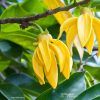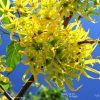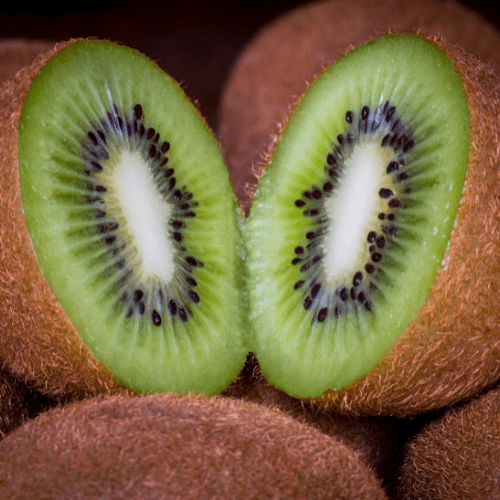Position:
Ylang Ylang trees in rich, well-draining soil and ample sunlight.
Soil:
Slightly acidic to neutral, and consistently moist soil is required. Providing the right soil conditions is essential for the successful cultivation of Ylang Ylang trees and the production of high-quality flowers for essential oil extraction. Plant in acid compost mixed with your garden soil or potting soil if planting in the ground. Soil that retains too much water can lead to root suffocation and disease.
Watering:
Adequate moisture helps promote healthy growth and flowering. However, the soil should not remain waterlogged for extended periods.
Mulching:
Add a thick layer of pine bark mulch, keeping it about 20 to 30 centimetres away from the tree trunk (any closer may cause excess moisture and damage the trunk). This will retain the moisture in the soil and will prevent weeds from taking over.
Fertilising:
Apply 1 teaspoon of our slow-release nitrogen-rich berry fertiliser every 4-5 months.
Pests and Diseases:
Aphids, citrus psylla, red scale, citrus greening. Spraying regularly with Agricultural Neem Oil or Effective Microorganisms (EM Control ) will assist in either prevention or after the fact. If you already have aphids or mites, wash the tree with a harsh hosing, and when dry, spray with Neem oil or EM Control.
Practice good garden hygiene (remove fallen fruit and leaves).
Watch for root rot (if overwatered) and fungal infections during wet periods.
Pruning:
Pruning Ylang Ylang trees is important for maintaining their health, shape, and promoting optimal flowering.
Pruning is crucial. It’s best to do so in late winter or early spring when the tree is dormant. This strategic timing is key to maintaining the tree’s health and promoting optimal flowering. Pruning during active growth or flowering periods can actually reduce flower production, so it’s important to avoid it.
Harvesting:
Ylang Ylang flowers require skill and attention to detail to ensure the production of high-quality essential oil prized in the perfumery and aromatherapy industries. Sustainable harvesting practices are essential to protect Ylang Ylang trees and their natural habitats for future generations.









